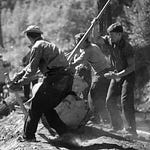It is June 10, 1863.
Former Yale senior Matthew Miller, from Galena, Illinois, is writing a letter to his aunt from Milliken’s Bend, Mississippi, where he commands a Federal unit of Black troops.

Miller’s unit is one of several Federal units encamped there.
Their mission is to guard a depot supplying Grant’s troops who are besieging Vicksburg fifteen miles away.

Most of the troops guarding this Federal depot are Black men.

Many of them were enslaved laborers until just recently.
They have had little military training.

Three days ago, on June 7, a Confederate cavalry unit attacked them,
hoping to cut off the supply line which sustains Grant’s army.
The battle for control of the depot was terrible,
turning into a hand-to-hand fight with bayonets
which killed or wounded most of the Federal troops.

From Miller’s letter:
“We were attacked here on June 7, about 8 o’clock in the morning,
by a brigade of Texas troops, about 2,500 in number.
We had about 600 men to withstand them, 500 of them negroes.
My company went into the fight with 33 men.
I had 16 killed and 11 badly wounded, 4 slightly.
I never felt more grieved and sick at heart
than when I saw how my brave soldiers had been slaughtered.
One with six wounds, all the rest with two or three, none less than two wounds.
Two of my colored sergeants were killed, both brave, noble men;
always prompt, vigilant, and ready for the fray.
I never more wish to hear the expression, “The niggers won’t fight.”

A boy I had cooking for me came and begged a gun
when the rebels were advancing, and he took his place with the company.
And when we retook the breast-works I found him badly wounded
with one gunshot and two bayonet wounds.
A new recruit I had issued a gun to the day before the fight was found dead,
with a firm grasp on his gun, the bayonet of which was broken in three pieces.
They fought and died defending the cause that we revere.
They met death coolly, bravely.
So God has spared me again through many dangers.
I cannot tell how it was I escaped.”

The battle at Milliken’s Bend was one of the first
in which large numbers of Black troops participated.
Their story spurred Black enlistments and persuaded more white officers
to take command of Black units.
The Black men had earned respect.
But they had paid a high price for it.

From Hemingway:
The world breaks everyone.
And afterward, many are strong at the broken places.
— A Farewell to Arms, 1929
I’ll see you tomorrow.
— Brenda


















Share this post